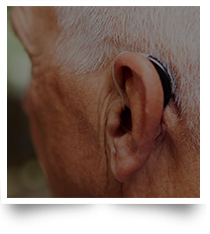Ear Services
Acoustic Neuroma
Acoustic neuromas are slow growing benign tumors that develop on the sheath of the nerve of hearing and balance. Typical presenting signs include unilateral hearing loss and imbalance. Over time, the tumors can become quite large and compress the brainstem and cerebellum, and wipe out hearing and balance function on the affected side. Treatment options include observation with serial imaging to determine the rate of growth of the tumor, radiation to stunt the growth of the tumor, or surgical removal. All options have their benefits and disadvantages, as well as significant risk. Decisions are frequently based on patient age, rate of growth of the tumor, hearing status, and general health of the patient. We work as a surgical team with a neurosurgeon in treating these tumors, and recommend a discussion with your doctor to weigh all options.
Ear Infections & Drainage
Ear infections are one of the most common diseases in children and occur most often between the ages of four months and five years. An infection occurs when excess fluid, often as a result of a cold, becomes trapped in the eustachian tubes or infected by bacteria. This fluid pushes against the eardrum and causes pain.
Aside from pain, ear infections can also cause:
- Hearing loss
- Fever
- Irritability
- Discharge from the ear canal
- Difficulty sleeping
Although an ear infection can cause your child pain and may result in crying, sleepless nights, there is no real treatment method. Ear infections usually go away on their own and are not helped much by antibiotics. Over-the-counter pain relief is often recommended, but otherwise there is no standard treatment for this common condition.
Meniere’s Disease
Meniere’s disease involves abnormalities in the inner ear that lead to hearing and balance problems. This condition usually occurs in only one ear and is most common among adults in their 40s and 50s. According to the National Institute on Deafness and Other Communication Disorders, over 600,000 people in the US have Meniere’s disease.
Vertigo & Balance Problems
Hearing and balance problems are often inter-related conditions, as part of the inner ear (known as the labyrinth) interacts with other body systems like the eyes, bones and joints to maintain balance. Problems within the vestibular (ear) system can cause balance problems, which affect over 2 million people each year.
A balance disorder is a complex condition that causes feelings of unsteadiness, wooziness and sensations of spinning, moving or floating.
Some of the most common balance disorders include:
- Labyrinthitis
- Meniere’s disease
- Benign Paroxysmal Positional Vertigo
- Vestibular neronitis
Treatment for hearing and balance disorders involves treating the underlying cause of the condition, which may be done through hearing aids, ear tubes, surgery or other treatments. Your doctor will decide which treatment is best for you after a thorough evaluation of your condition.







